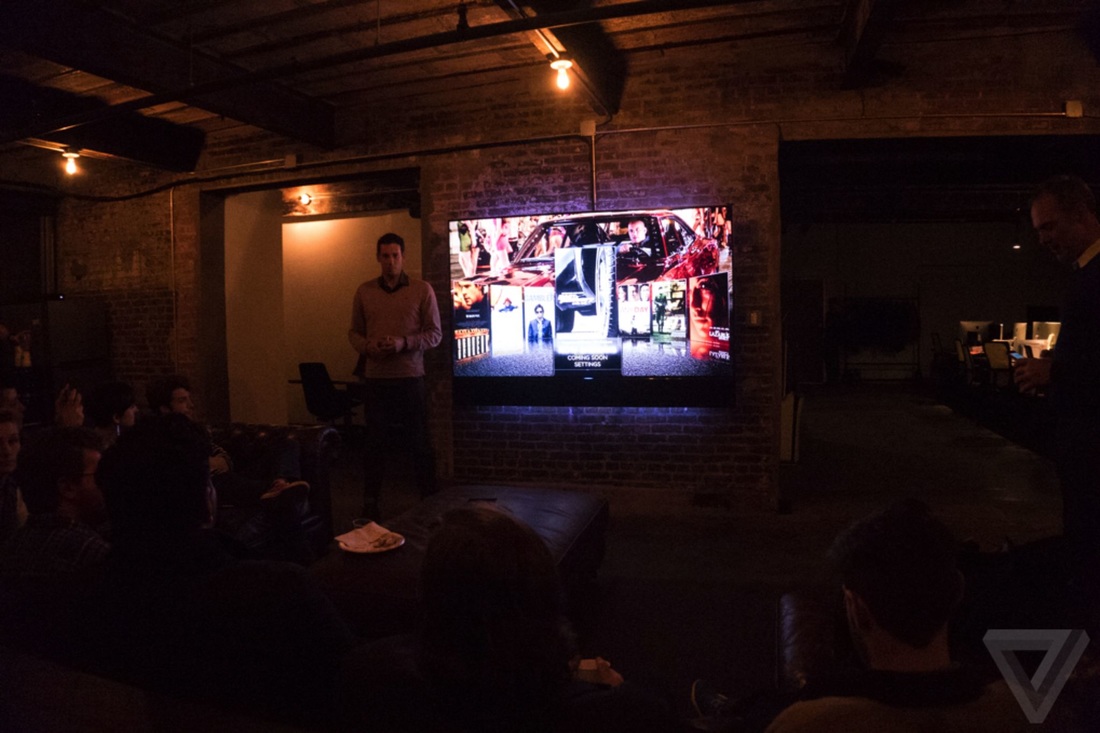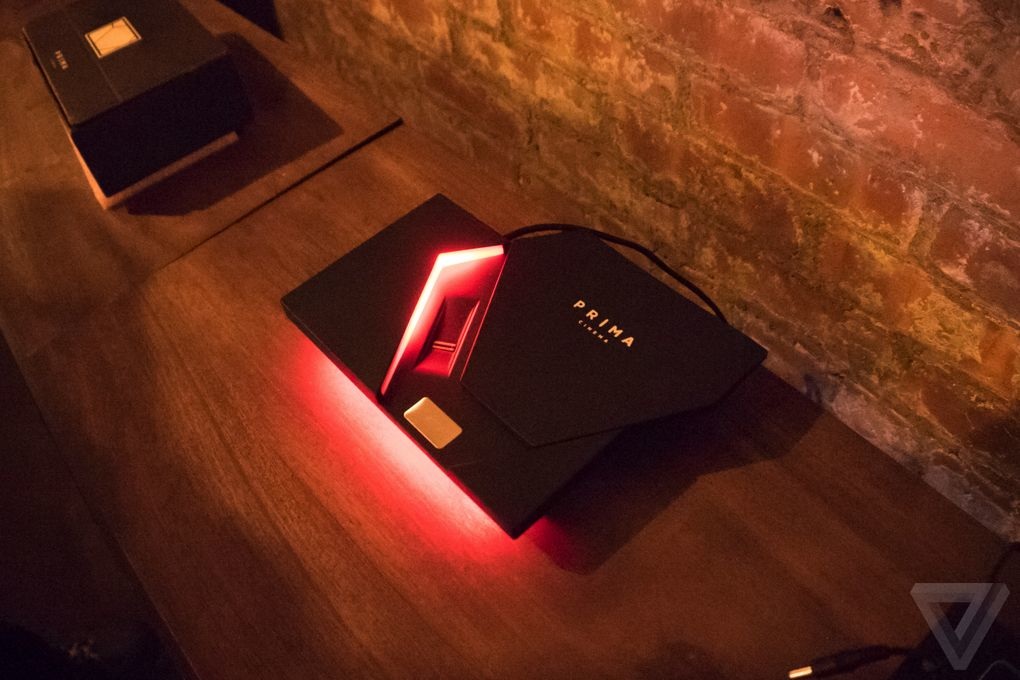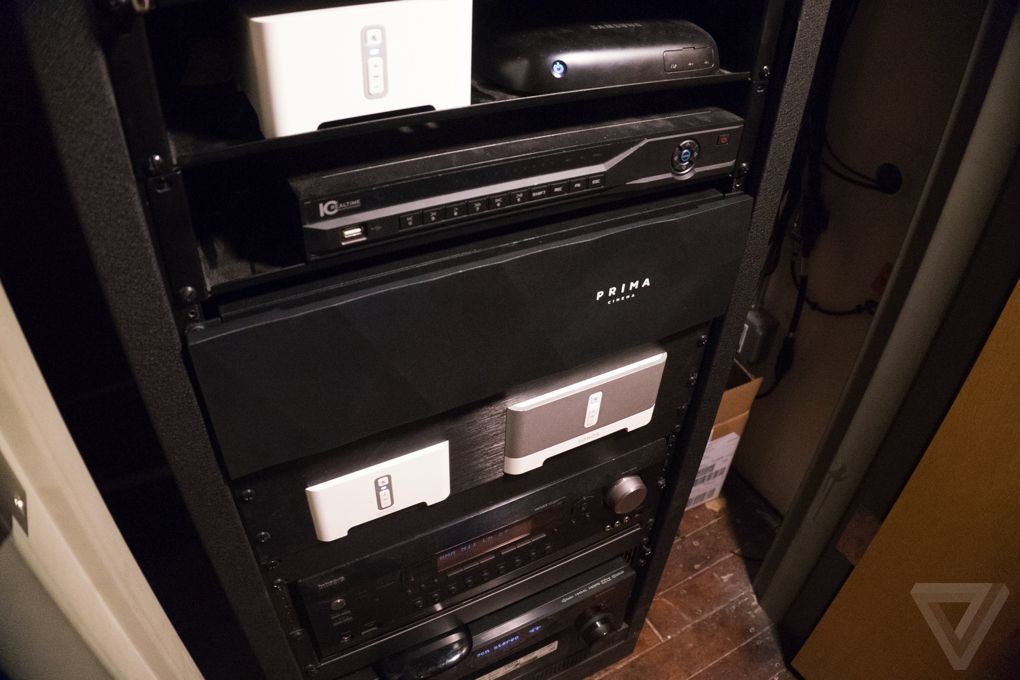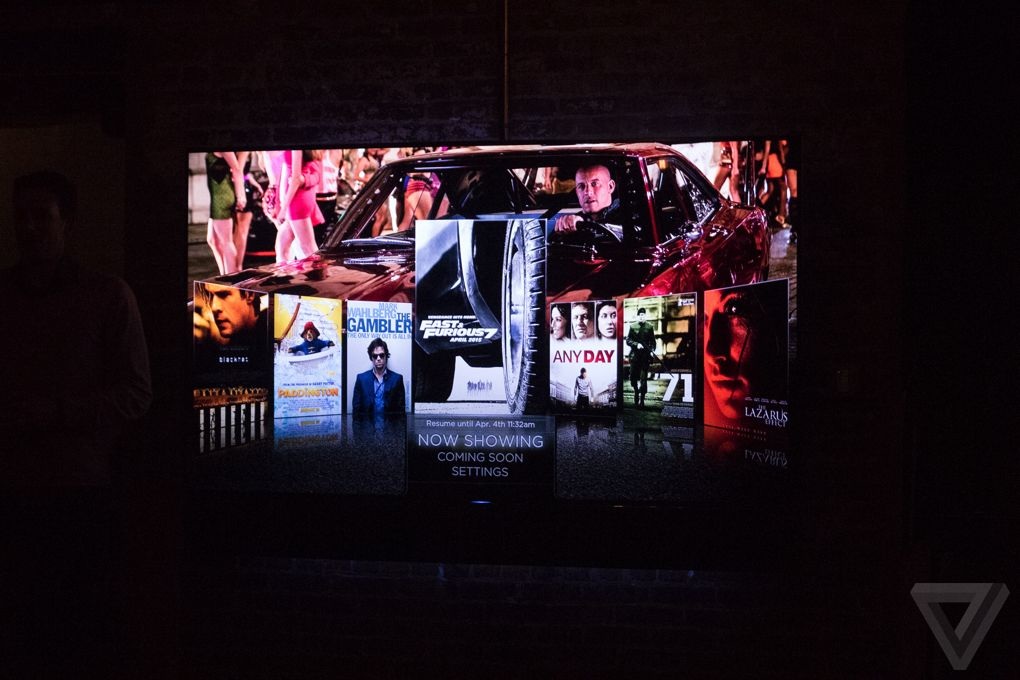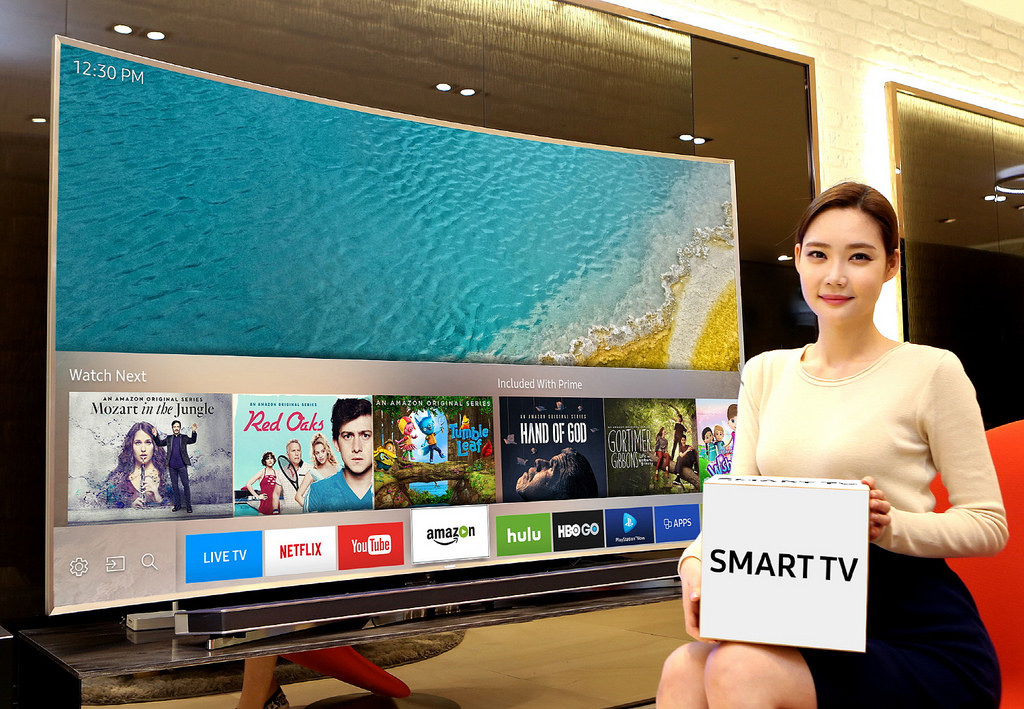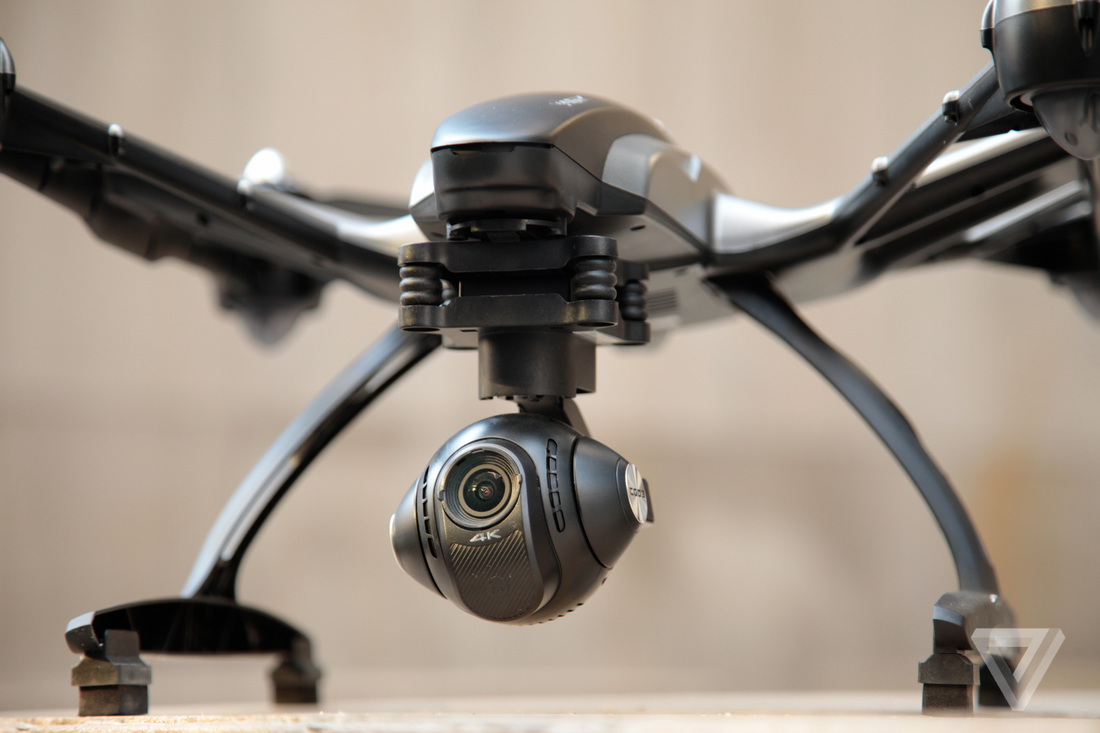Last Friday we were invited to the Brooklyn offices of ultra-high-end smarthome integrator OneButton to get a demonstration of PRIMA Cinema, which is billed as the one and only way to get first-run movies in the home — quite often on the same day that they hit theaters. It’s basically a set-top box on steroids, except the box is so big that it’s rack-mounted in a closet. (Also, there’s a separate biometric authentication station.)
Studios don’t simply sell first-run movies to anyone who wants them, because theaters are notoriously protective of their precious revenue streams, which are almost entirely predicated on getting new movies first. The notion of an affordable rental option from, say, iTunes on the same day as the theatrical release scares the hell out of the AMCs and Regal Cinemas of the world, and — for the moment, anyway — studios are generally sympathetic of their plight. All this means that getting a day-one movie release into a private residence requires a rigamarole of the highest order, and PRIMA answers the call with an extremely complex and highly secure setup. That complexity and security also affords it some degree of buffer against competition; no one else currently does this.
NO ONE ELSE CURRENTLY DOES THIS
The rackmount PRIMA box is crazy, too. It has yet another thumbprint scanner, dual HDMI, dual gigabit Ethernet, dual power supplies, and a RAID 5 array where all the movies are stored. In other words, absolutely everything is redundant. "There’s no single point of failure for anything on this device," says Shawn Yeager, PRIMA’s co-founder and CEO. "If anything goes wrong, it’s going to really have to go wrong before it upsets your client."
You can’t stream movies with PRIMA — everything needs to be entirely pre-downloaded ahead of time. And as with the hardware’s redundancy, it’s all about keeping customers happy. "A client doesn’t really care if the reason the movie is stopped is that Comcast has done something silly, or Time Warner has done something silly. All they know is they can’t watch Minions, and that’s your problem," Yeager says. That’s why every available film automatically downloads well ahead of its release date. Needless to say, this system wouldn’t play well with ISP data caps.
Airtight security and redundancy aren’t the only hoops that PRIMA has to jump through, though — the company encodes the films itself, and it needs artistic sign-off on those encodings. "We actually got Insurgent a week before it was released," Yeager says. "The problem was that the director hasn’t signed off on the color space conversion. Unless the director signs off on the color space conversion, you can’t do it. So the amount of stuff you have to go through, it’s remarkable."
Movies look great on PRIMA. They’re not 4K yet — Yeager says the company is waiting for the technology to mature — but they’re encoded at 10-bit 1080p 4:2:2, which is shorthand for "very high-quality with a lot of colors." If you have the system hooked up to good AV equipment and a good television (which, as a wealthy individual, of course you would), everything looks wonderful. Put it on a big enough flat-panel or projection system and I’d challenge you to say it’s noticeably worse than a good theater.
THE PRIMA SYSTEM WASN'T A TOUGH SELL
As I mentioned before, PRIMA is just as expensive as it sounds. The equipment alone runs $35,000 — yes, "35" followed by three zeroes — and the movies are $500 each (some indie titles cost less). There’s no way to buy movies through the system, it’s rental only. The good news is that there’s no subscription fee once you get started, but new users are required to pay for ten movies ($5,000) upfront just to establish a relationship with PRIMA and make sure that everything is working correctly.
Not to say the expense is scaring people away, anyhow: Yeager says he can’t make the systems fast enough. Sell your company recently? Get on PRIMA’s waiting list.
